■ 15/12/2009 The memorial lecture meeting
As a part of this program we invited Mrs. Siew Stielow and made a lecture
meeting.
She is working as ICN in Australia now and used to work a member of WHO when
outbreak of SARS in China 2003.
Date:15th/Dec/Tue./09 14:00~16:00
Place: Fukuoka satellite classroom in
Across (Fukuoka city)
Subject:
1. The report of ICN activities in Japan
Kurume university hospital infection
control department
Certified infection control nurse :Miss Kawano
2.Present conditions and the future of ICN
activities in Australia
- Australia and international ICN -
Mrs. Siew Stielow Infection Control Consultant,Radiation
Safety Officer
The Royal Victorian Eye & Ear Hospital
,Australia
3.About Infection Control Nurse(ICN)
training program
Kurume University Graduate school medical
research department master's course Medical department nursing department Professor
Mihashi
Total participants:19
Influenza A-H1N1 (Human swine flu)
It is A new virus,has never before circulated among humans, not
related to previous or current human
seasonal influenza viruses, and the place of origin of the virus is
unknown.
How do you protect yourself ?
- Avoid touching your mouth and nose
- Regular hand hygiene – soap & water or alcohol-based hand rub
- Avoid close contact with people who might be ill (maintain a distance of
approx 1 m)
- Reduce
time spent in crowded settings
- Improve airflow in your living space
- Practise good health habits including adequate sleep, eating nutritious
food, keep physical activity
- Vaccination
Hand Hygiene
It’s a single most
important measure to prevent spread of infection
Routine Hand washing
- Wet hands thoroughly
- Lather
with soap vigorously
- Rubbing
hands together for at least 10-15 seconds
- Rinse
under running water
- Pat dry using paper towel
Alcohol-based Hand rub
Personal experience working as a WHO short-term consultant
~SARS: Number of current probable cases in
China as of 27 June 2003~
SARS Surveillance Case detection
Strategies for case detection and control
- Fever clinics
- Monitoring returnees – those return from affected areas quarantined &
monitored stay in their home, temp taken
- Transportation centers – Airport etc Forms to be completed & temp taken
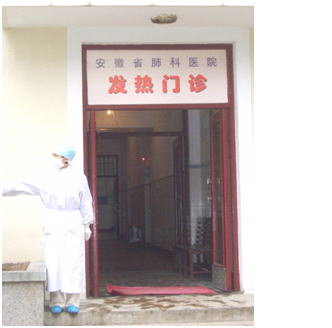 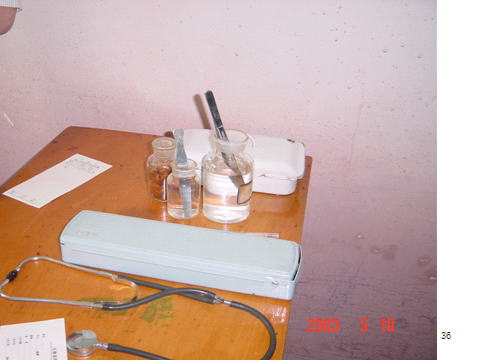
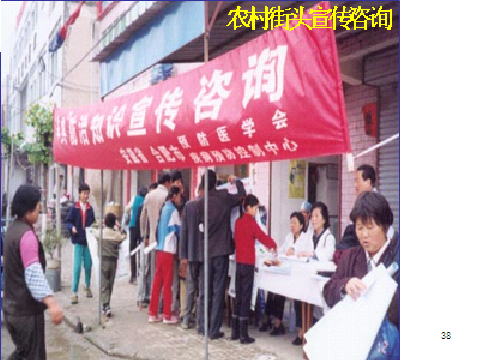 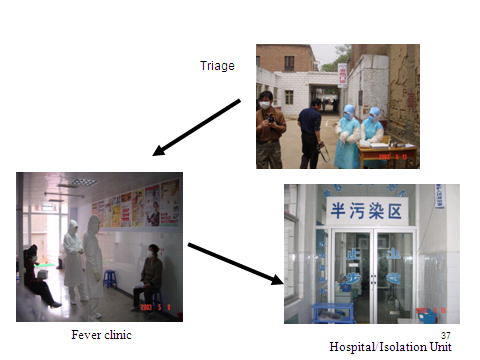
Infection Control in
Hospitals
- Training – to all staff. Special training to HCWs* (doctors, nurses, cleaners)
working
with potential SARS patients
*Health Care Workers
- Guidelines – strong commitment & strict compliance.
Very detailed & complicated
- Safety Inspection – one person to check proper use
& wearing of PPE
- Isolation Unit – Separate with single rooms, some have hand basin and toilet.
- Lack of exhaust fans in rooms. No neg pressured rooms
Personal Protective Equipment
Follow National Guidelines – wearing mask, gowns, gloves, head cover,
shoe cover & goggles
multiple layers of protective clothing, masks and gloves.
Lack of highly protective masks, including those working with ventilated patients.
No N95 mask
Hand Hygiene
Hand washing and drying facility - inadequate
Hand washing practices- failure to change gloves and
gowns and wash hands between visits to different patients
- HCWs soaked gloved hands in disinfectant
Use of Disinfectant - Excessive
Use for spraying
- Isolation rooms, surfaces, floor, floor mats etc
Use for soaking- hands, boots, faces, urine, mops, mask, linen etc
Decontamination of Hospital Environment
- using disinfectant spray
- air purification unit
- ultra-violet light
Staff
Quarantine
Working staff in the SARS isolation units are required to remain isolated
in a special residence after finishing their shifts and for 15 days after
completing their tours of duty.
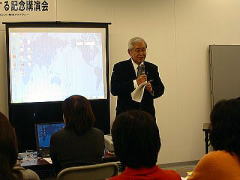 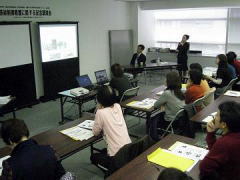
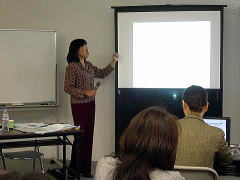 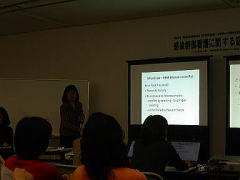
Mainly she made a speech about new style of influenza (A H1N1) and activities
in SARS.
They had a lively discussion about
activities at WHO or medical organization of each country.
| Comment from participants |
- It was good to learning about measures of the out break and epidemiology.
- It was plain about activity of WHO.
I'm interested in about the medical system of each country .
- It was comprehensible that same measures at the SARS outbreak and new influenza.
|